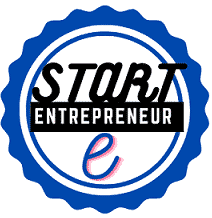Blockchain Applications full review. The early internet dealt with intangibles. You sent or obtained emails, corresponded on boards, learn and distributed articles. This modern internet deals with belongings, your most valuable instant objects that you could touch and wish to shield. These assets are saved in encoded type on a network-to-network chain known as the blockchain or ledger, the place each participant sees who you do enterprise with. This not only protects your corporation dealings and prevents theft, however, additionally, simplifies your affairs, quickens the process, reduces errors, and saves you from hiring a 3rd party.
This decentralized blockchain system goes to alter your life from the finest way you transact enterprise or manage property, to the way you employ your machines, vote, rent a automotive, and even show who you are. Along the greatest way, it’s going to rework banks and different financial establishments, hospitals, firms, and governments amongst others.
If you wish to create your personal applications, please check out our blockchain programs.
Here’s what the blockchain does and what it means to you.
Blockchain Finance
Decentralized cryptocurrencies
At its simplest, cryptocurrencies, or digital coins, are cash which are handed by way of an electronic community. You can make transactions by check, wiring, or cash. You can even use a kind of virtual currency, most famously Bitcoin (BTC) but in addition Litecoin, Peercoin, or Dogecoin, amongst others, the place you use an digital coded address to make the transaction.
The extra useful the transaction, the extra you wish to defend it. Traditional systems rent a mediator, corresponding to a banker or a remittance firm to ensure trust. Islanders of Yap had a special solution. They saved a psychological document of who owned what and referred to this distributed group document when disputes arose. The blockchain is that this group report on a wider, digital scale. It extends throughout the globe, with laptop customers from Yemen, Rome, Vermont and so forth the place every node in the network data and verifies the data of each transaction that occurs inside the community. Records are permanent, complete and public – which is why customers love the blockchain for finagling questionable or risky transactions.
How it works
Each transaction is a digital ‘block’ that must be verified before it’s allowed to enter the system.
Questions embody:
* Is the money there?
* Are sender and receiver reputable?
* Is the request legitimate? And so forth.
Each computer on the network competes on unscrambling the answers, and the winning laptop provides this ‘block’ to the ‘blockchain’ within the order that the ‘block’ arrived. The winner broadcasts his proof to the the rest of the network, which checks that proof and verifies it earlier than queuing the ‘block’ to complete the transaction. Parties involved are assured that participants have screened and okayed the transaction.
The process not only cuts down on fraud, similar to double spending or spams, but also transfers funds merely, safely, and fast.
17 Uses of Blockchain Applications That Are Transforming Society
1. Asset Management: Trade Processing and Settlement
2. Insurance: Claims processing
3. Payments: Cross-Border Payments
four. Unconventional cash lenders/ exhausting money lending
5. Your car/ smartphone
6. Blockchain Internet-of-Things (IoT)
7. Smart Appliances
8. Supply Chain Sensors
9. Blockchain Healthcare
10. Blockchain music
eleven. Blockchain Government
12. Public value/ neighborhood
thirteen. Vested accountability
14. Blockchain Identity
15. Passports
sixteen. Birth, wedding, and death certificates
17. Personal Identification
Blockchain Business
Financial Services
Traditional systems tend to be cumbersome, error-prone and maddeningly slow. Intermediaries are often wanted to mediate the method and resolve conflicts. Naturally, this costs stress, time, and money. In distinction, customers discover the blockchain cheaper, more transparent, and simpler. Small surprise that a rising variety of financial companies are using this method to introduce improvements, such as smart bonds and smart contracts. The former routinely pays bondholders their coupons as soon as sure preprogrammed phrases are met. The latter are digital contracts that self-execute and self-maintain, once more when phrases are met.
Examples of blockchain financial providers purposes
1. 1. Asset Management: Trade Processing and Settlement Traditional commerce processes inside asset administration (where parties trade and manage assets) can be expensive and dangerous, notably in relation to cross-border transactions. Each party within the course of, similar to dealer, custodian, or the settlement supervisor, retains their own records which create vital inefficiencies and room for error. The blockchain ledger reduces error by encrypting the information. At the identical time, the ledger simplifies the process, whereas canceling the necessity for intermediaries. . Insurance: Claims processing Claims processing can be a irritating and thankless process. Insurance processors have to wade through fraudulent claims, fragmented information sources, or deserted policies for customers to state a couple of – and course of these types manually. Room for error is large. The blockchain provides an ideal system for risk-free management and transparency. Its encryption properties permit insurers to capture the possession of belongings to be insured. . Payments: Cross-Border Payments
The world payments sector is error-prone, costly, and open to cash laundering. It takes days if not longer for money to cross the world. The blockchain is already providing solutions with remittance companies such as Abra, Align Commerce and Bitspark that offer end-to-end blockchain powered remittance services. In 2004, Santander turned one of many first banks to merge blockchain to a funds app, enabling clients to make international payments 24 hours a day, whereas clearing the following day.
Smart Property
A tangible or intangible property, similar to automobiles, homes, or cookers, on the one hand, or patents, property titles, or company shares, on the opposite, can have sensible technology embedded in them. Such registration may be stored on the ledger along with contractual details of others who are allowed ownership in this property. Smart keys could presumably be used to facilitate access to the permitted party. The ledger stores and permits the trade of these good keys as soon as the contract is verified.
The decentralized ledger additionally becomes a system for recording and managing property rights as nicely as enabling the good contracts to be duplicated if data or the good key’s lost.
Making property sensible decreases your risks of running into fraud, mediation fees, and questionable enterprise conditions. At the same time, it will increase trust and efficiency.
Examples of Blockchain Smart Property Applications
1. Unconventional money lenders/ exhausting money lending
Smart contracts can revolutionize the standard lending system. For instance, unconventional money lenders (e.g. exhausting money lenders) service borrowers who have poor credit score with wanted loans – whereas charging two to 10 percent of the loan amount and claiming their property as collateral. Too many debtors fall into bankruptcy and lose houses. The blockchain can undercut this by permitting a stranger to mortgage you money and taking your smart property as collateral. No need to indicate the lender credit or work history. No need to manually process the quite a few paperwork. The property’s encoded on the blockchain for all to see. . Your car/ smartphone
Primitive types of smart property exist. Your car-key, for instance, may be outfitted with an immobilizer, the place the automotive can solely be activated once you tap the best protocol on the key. Your smartphone too will solely function when you sort in the best PIN code. Both work on cryptography to guard your ownership.The problem with primitive forms of good property is that the key is usually held in a bodily container, such because the car key or SIM card, and can’t be simply transferred or copied. The blockchain ledger solves this downside by permitting blockchain miners to exchange and replicate a misplaced protocol. . Blockchain Internet-of-Things (IoT)
Any materials object is a ‘thing.’ It turns into an internet of things (IoT) when it has an on/ off switch that connects it to the web and to one another. By being connected to a computer network, the thing, such as a automobile, turn into more than simply an object. It is now people-people, people-things, and things-things. The analyst firm Gartner says that by 2020 there might be over 26 billion linked gadgets. Others raise that number to over 100!How does the IoT affect you? Your printer can mechanically order cartridges from Amazon when it runs low. Your alarm clock will change your time for brewing espresso, while your oven will produce an immaculately timed turkey for Thanksgiving. These are just some examples. On a bigger scale, cities and governments can use IoT to develop cleaner environments, more environment friendly vitality use and so-called ‘smart cities,’ to improve how we live and work.
Where the blockchain comes in
As in all instances, the blockchain ledger offers security to this Internet of things. With billions of gadgets linked together, cybersecurity experts worry how to make sure this distributed data stays safe.
* What can corporations do to guard their methods from being invaded?
* How can inventors defend their ideas?
* How should governments protect their secret information from spies and potential terrorists?
Then, there’s the issue of the means to arrange and analyze this large quantity of knowledge that’s coming from these associated gadgets.
Enter the blockchain ledger system that ensures that information is just accepted and released to trusted parties. The ledger grants events a management platform for analyzing the vast amounts of knowledge.
Examples of Blockchain Internet-of-Things (IoT) Applications
1. Smart Appliances
A good equipment is a tool that connects to the internet and provides you extra data and management than before. For instance, a code connected to your equipment may be linked to the web and alert you when your cookies are ready or if your laundry has stopped. These alerts hold your home equipment in good condition, they save you money concerning energy efficiency and help you control your devices when away from residence, amongst other benefits. Encrypting these appliances on the blockchain protects your possession and permits transferability. . Supply Chain Sensors
Sensors give corporations end-to-end visibility of their supply chain by offering information on the placement and situation of the provides as they’re transported across the globe. As of 2016, a Deloitte and MHI report surveyed 99 main provide chain companies and found that sensors had been used by 44% of those respondents. Eighty-seven % of these industries stated they plan to make use of the technology by 2020. The technology is anticipated to develop to 1 trillion by 2022 and to 10 trillion sensors by 2030, according to this sme Deloitte and MHI report. The blockchain shops, manages, protects and transfers this good information.
Smart Contracts
Smart contracts are digital which are embedded with an if-this-then-that (IFTTT) code, which supplies them self-execution. In real life, an middleman ensures that every one parties comply with through on phrases. The blockchain not solely waives the necessity for third parties, but additionally ensures that every one ledger individuals know the contract details and that contractual terms implement mechanically once conditions are met.
You can use smart contracts for all kind of situations, similar to financial derivatives, insurance coverage premiums, property regulation, and crowd funding agreements, amongst others.
Examples of Blockchain Smart Contracts Applications
1. Blockchain Healthcare
Personal health records might be encoded and saved on the blockchain with a non-public key which would grant access solely to specific people. The identical technique could be used to make sure that research is conducted via HIPAA legal guidelines (in a safe and confidential way). Receipts of surgeries might be stored on a blockchain and routinely sent to insurance coverage suppliers as proof-of-delivery. The ledger, too, could probably be used for general health care administration, similar to supervising drugs, regulation compliance, testing results, and managing healthcare supplies. . Blockchain music
Key issues in the music industry include ownership rights, royalty distribution, and transparency. The digital music trade focuses on monetizing productions, whereas ownership rights are often ignored. The blockchain and smart contracts technology can circuit this downside by creating a comprehensive and correct decentralized database of music rights. At the same time, the ledger and provide transparent transmission of artist royalties and real time distributions to all concerned with the labels. Players could be paid with digital forex according to the required phrases of the contract. . Blockchain Government
In the 2016 election, Democrats and Republicans questioned the safety of the voting system. The Green Party known as for a recount in Wisconsin, Pennsylvania, and Michigan. Computer scientists say hackers can rig the electronic system to control votes. The ledger would forestall this since votes turn out to be encrypted. Private people can affirm that their votes were counted and confirm who they voted for. The system saves cash, by the way, for the federal government, too.The blockchain ledger, also, provides a platform for what we name “responsive, open data.” According to a 2013 report from McKinsey and Company, open knowledge – freely accessible government-sourced data that’s out there over the web to all citizens – could make the world richer by $2.6 trillion. Startups can use this data to uncover fraudulent schemes, farmers can use it to perform precision farm-cropping, and parents can examine the unwanted side effects of medication for their sick children. Right now, this information is launched solely every year and is, largely, non-responsive to citizens input. The blockchain, as a public ledger, can open this knowledge to residents every time and wherever they want.
Examples of Blockchain Government Applications
1. Public value/ community
The blockchain can facilitate self-organization by providing a self-management platform for corporations, NGOs, foundations, authorities companies, teachers, and particular person citizens. Parties can interact and exchange information on a worldwide and transparent scale – think of Google Cloud, but larger and less risky. . Vested responsibility
Smart contracts can ensure that electorates could be elected by the people for the people so that authorities is what it’s meant to be. The contracts specify the electorate’s expectations and electors will receives a commission solely as quickly as they do what the voters demanded somewhat than what funders desired. . Blockchain Identity
Whether we prefer it or not, on-line corporations know all about us. Some companies whom we buy from sell our identification details to advertisers who send you their advertisements. The blockchain blocks this by creating a protected information level where you encrypt only the knowledge that you want related people to know at certain times. For example, if you’re going to a bar, the bartender simply needs the data that tells him you’re over 21.
Blockchain Identity
The blockchain protects your id by encrypting it and securing it from spammers and marketing schemes.
Examples of Blockchain Identity Applications:
1. Passports
The first digital passport launched on Github in 2014 and will assist owners identify themselves on-line and off. How does it work? You take a picture of your self, stamp it with a private and non-private key, each of that are encoded to show it’s reliable. The passport is stored on the ledger, given a bitcoin handle with a public IP, and confirmed by Blockchain users. . Birth, wedding ceremony, and demise certificates
Few things are extra essential than documents showing you’re born, married, died which open your rights to all types of privileges (such as voting, working, citizenship), yet mismanagement is rife. Up to a 3rd of kids underneath the age of five have not been issued a birth certificate, the UNICEF reported in 2013. The blockchain could make record-keeping extra dependable by encrypting birth and dying certification and empowering residents to entry this important data. . Personal Identification
We carry a spread of identifications: Our driver’s license, pc password, identification playing cards, keys, social safety ID, and so forth. Blockchain ID is a digital form of ID that’s engineered to switch all these forms of bodily identification. In the future, fintech scientists say you’ll have the flexibility to use the one digital ID for signing up at any registrar. It is open source, secured by the blockchain, and guarded by a ledger of clear account.
Blockchain Applications: Conclusion
It’s important to notice that for the blockchain to work, the node-to-node community must be motivated and agree to work under moral requirements. Once, and only if, these requirements are adhered to, the blockchain could turn out to be a robust tool for bettering business, conducting fair commerce, democratizing the worldwide financial system, and helping assist more open and truthful societies.






